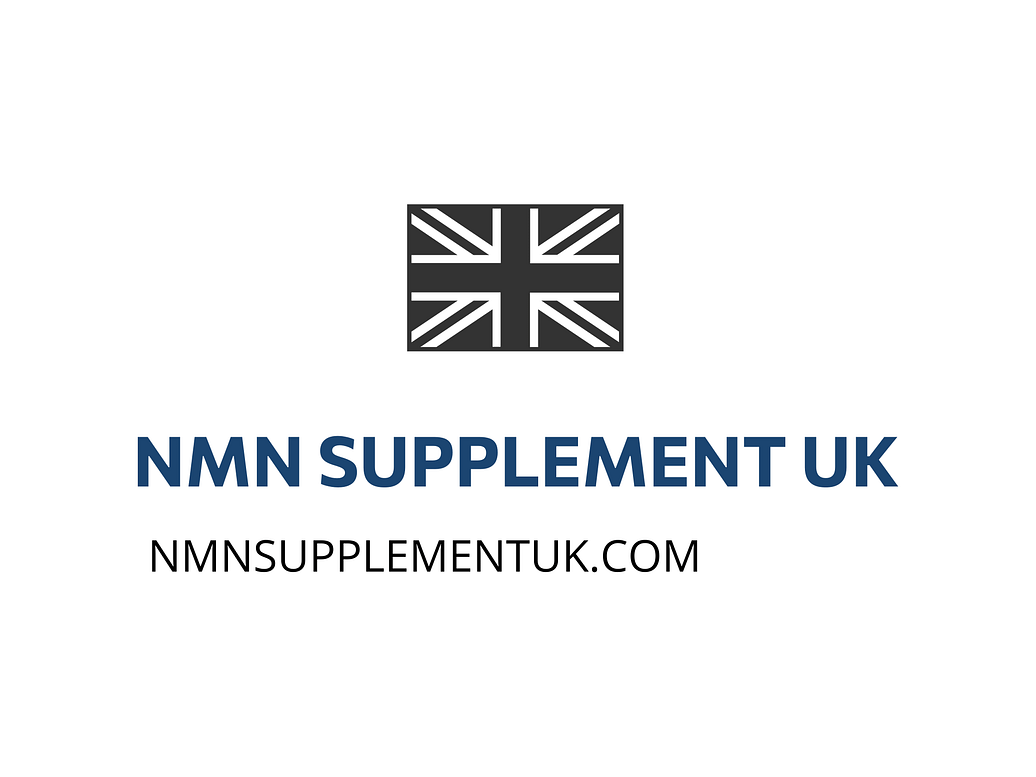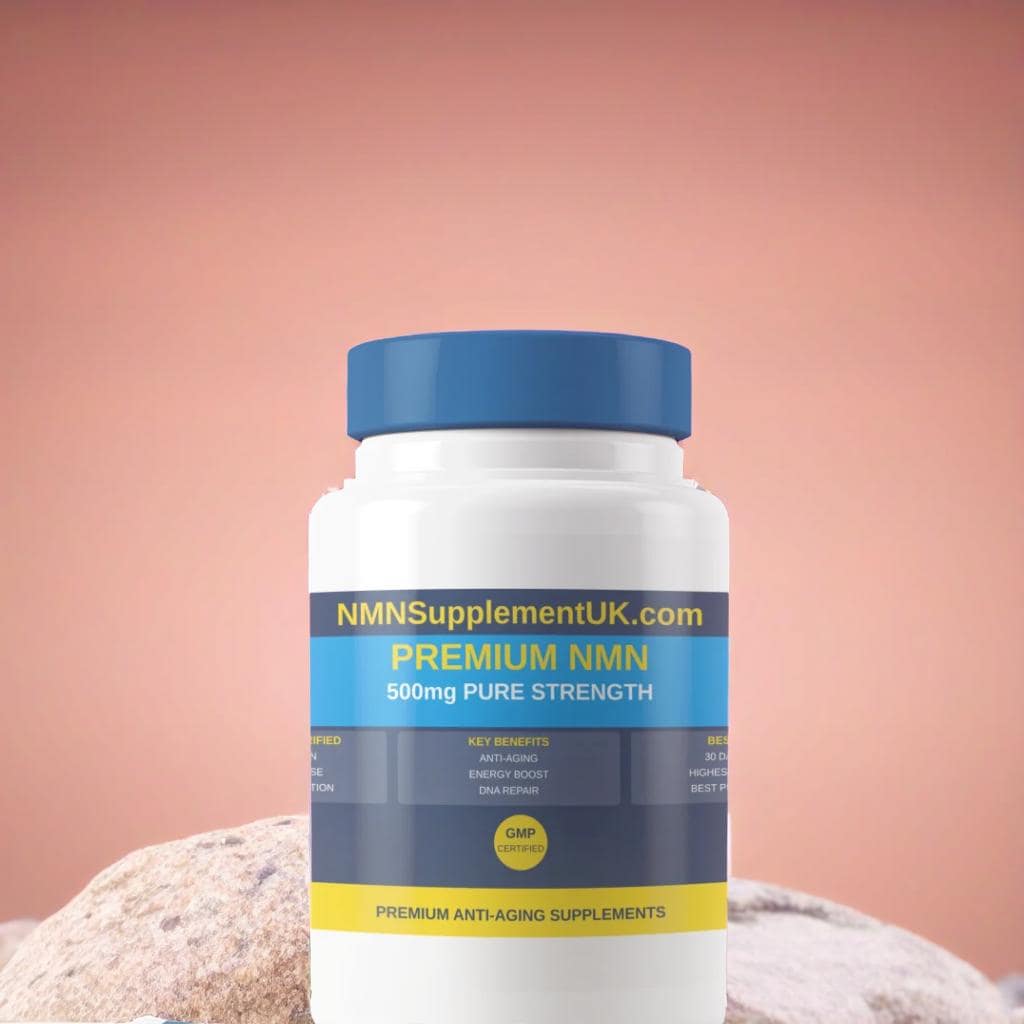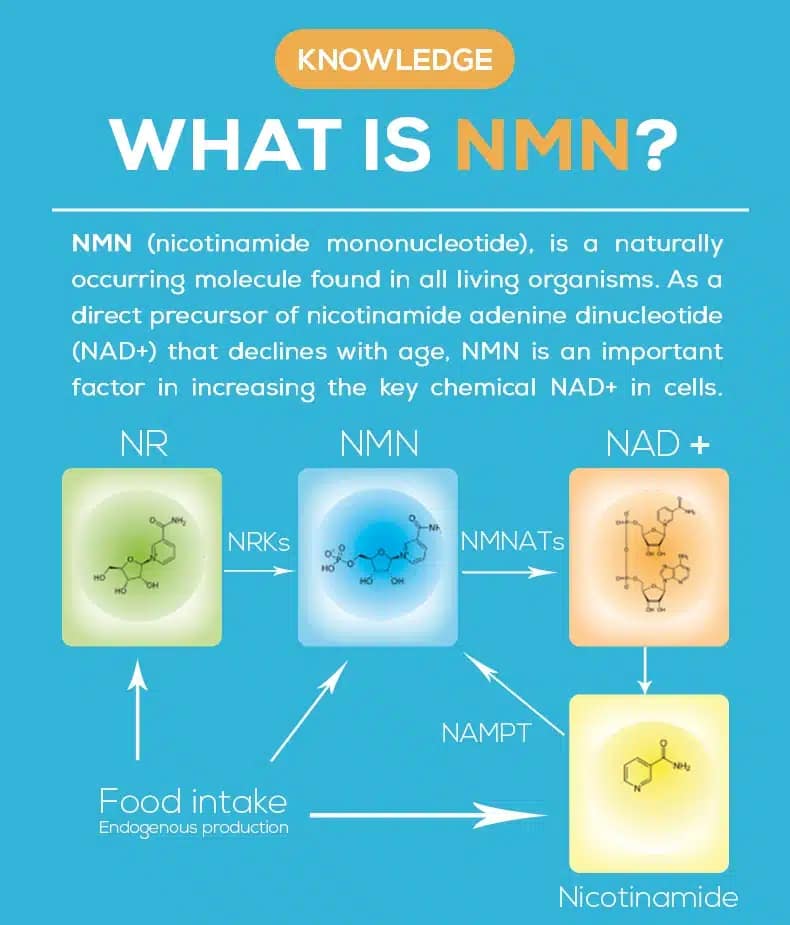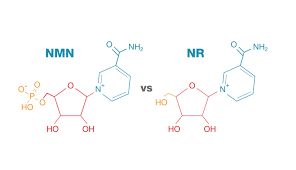NMN supplements vs. nicotinamide: 7 Professional Differences
NMN supplements vs. nicotinamide: 7 Professional Differences
The world of health supplements has witnessed a significant surge in recent years, with various products claiming to offer numerous benefits. Two such supplements that have gained considerable attention are NMN (β-Nicotinamide Mononucleotide) supplements and nicotinamide. While both are related to the B3 vitamin, also known as niacin, they have distinct differences in terms of their composition, mechanism of action, and effects on the human body. In this article, we will delve into the 7 professional differences between NMN supplements and nicotinamide, exploring their unique characteristics and potential benefits.
Introduction to NMN Supplements and Nicotinamide
Introduction to NMN Supplements
NMN (Nicotinamide Mononucleotide) supplements have gained significant attention in recent years due to their potential benefits in promoting healthy aging and overall well-being. NMN is a naturally occurring compound found in the body, playing a crucial role in the production of NAD+ (Nicotinamide Adenine Dinucleotide), a coenzyme essential for various cellular processes. As people age, their NAD+ levels tend to decline, which can lead to a range of age-related health issues. NMN supplements aim to support the replenishment of NAD+ levels, thereby potentially mitigating the effects of aging.
Benefits of NMN Supplements
The potential benefits of NMN supplements are diverse and have been the subject of extensive research. Some of the key advantages include:
- Improved cellular energy metabolism
- Enhanced physical performance and endurance
- Support for healthy weight management
- Potential anti-aging effects, such as improved skin health and reduced inflammation
- Support for cognitive function and mental clarity
It is essential to note that more research is needed to fully understand the effects of NMN supplements on human health. However, the existing evidence suggests promising outcomes for those looking to support their overall health and wellness.
Choosing the Right NMN Supplement
With the growing popularity of NMN supplements, the market now offers a wide range of products. When selecting an NMN supplement, it is crucial to consider factors such as the product’s quality, purity, and bioavailability. Look for supplements that are manufactured by reputable companies and adhere to strict quality control standards. For more information on what to look for in an NMN supplement and how to incorporate it into your health regimen, visit NMN supplements for a selection of high-quality NMN products.
Learning More About NMN
To gain a deeper understanding of NMN supplements and their potential benefits, it is helpful to delve into the science behind these products. Understanding how NMN works, its interaction with NAD+, and the current state of research can provide valuable insights into how these supplements can support your health goals. For a comprehensive overview of NMN and its role in health and wellness, visit About Us page to learn more about the basics of NMN and its applications. Additionally, for answers to frequently asked questions about NMN supplements, including dosage, side effects, and efficacy, refer to FAQ page for detailed information.
NMN supplements are designed to boost the levels of β-Nicotinamide Mononucleotide, a naturally occurring compound found in the body. NMN is a precursor to NAD+ (Nicotinamide Adenine Dinucleotide), a coenzyme that plays a vital role in various cellular processes, including energy metabolism, DNA repair, and gene expression. Nicotinamide, on the other hand, is a form of vitamin B3 that can also contribute to the production of NAD+. However, the two supplements have different approaches to achieving this goal.
1. Composition and Structure
One of the primary differences between NMN supplements and nicotinamide lies in their composition and structure. NMN supplements contain β-Nicotinamide Mononucleotide, which is a more direct precursor to NAD+. Nicotinamide, while related to NAD+ production, is a simpler molecule that requires additional enzymatic steps to be converted into NAD+. This distinction can affect the efficiency and speed at which NAD+ levels are boosted in the body.
2. Mechanism of Action
The mechanism of action is another crucial aspect where NMN supplements and nicotinamide differ. NMN supplements work by directly increasing the levels of NMN in the body, which is then converted into NAD+ through the action of the enzyme NMNAT1. This process is more streamlined and efficient, potentially leading to faster and more significant increases in NAD+ levels. Nicotinamide, however, is first converted into NAM (Nicotinamide) and then into NMN through a series of enzymatic reactions before being converted into NAD+. This indirect pathway may result in slower and less efficient NAD+ production.
3. Bioavailability and Absorption
The bioavailability and absorption rates of NMN supplements and nicotinamide also vary. NMN supplements have been shown to have a higher bioavailability compared to nicotinamide, meaning a greater proportion of the supplement is absorbed and utilized by the body. This could be due to the more direct conversion of NMN to NAD+, reducing the loss of the supplement during the metabolic process. For those interested in purchasing high-quality NMN supplements, NMN Supplement UK offers a range of products.
4. Effects on NAD+ Levels
The impact of NMN supplements and nicotinamide on NAD+ levels is a critical area of difference. Studies have indicated that NMN supplements can significantly increase NAD+ levels in the body, potentially leading to improved energy metabolism, enhanced DNA repair, and better protection against age-related diseases. Nicotinamide, while capable of increasing NAD+ levels, may not be as effective or efficient in this regard, especially at higher doses where it can inhibit the enzyme sirtuin, which is dependent on NAD+ for its activity.
5. Potential Health Benefits
Both NMN supplements and nicotinamide have been associated with various potential health benefits, including improved cardiovascular health, enhanced cognitive function, and increased longevity. However, the specific benefits and the extent to which each supplement can provide these benefits differ. NMN supplements, due to their more direct and efficient increase in NAD+ levels, may offer more pronounced benefits in terms of energy metabolism and protection against age-related diseases. For more information on the benefits of NMN supplements and to learn about the company behind these products, visit NMN Supplement UK’s about us page.
6. Safety and Side Effects
The safety profiles and potential side effects of NMN supplements and nicotinamide are also worthy of consideration. Both supplements are generally considered safe when taken at recommended doses. However, nicotinamide can cause skin flushing at high doses, a side effect not typically associated with NMN supplements. Moreover, the long-term effects of taking either supplement are still under investigation, and individuals should consult with a healthcare professional before starting any new supplement regimen. For answers to common questions about NMN supplements, including safety and efficacy, refer to NMN Supplement UK’s FAQs.
7. Research and Clinical Evidence
Lastly, the research and clinical evidence supporting the use of NMN supplements and nicotinamide differ significantly. While both have been studied in various contexts, NMN supplements have been the subject of more recent and intensive research, particularly in the areas of aging and age-related diseases. The scientific community continues to explore the potential of NMN supplements in improving human health, with ongoing studies investigating their effects on NAD+ levels, energy metabolism, and overall well-being. For more information on the science behind NAD+ and its role in human health, visit the National Center for Biotechnology Information, a comprehensive resource on biomedical literature.
Conclusion
In conclusion, NMN supplements and nicotinamide, while related in their association with vitamin B3 and NAD+ production, exhibit distinct differences in composition, mechanism of action, bioavailability, effects on NAD+ levels, potential health benefits, safety profiles, and research evidence. Understanding these differences is crucial for individuals looking to supplement their diet with either NMN or nicotinamide, as it can help them make informed decisions about their health. As research continues to uncover the benefits and mechanisms of these supplements, it is essential to consult with healthcare professionals and reputable sources to ensure safe and effective use. Whether you are considering NMN supplements for their potential to boost NAD+ levels and improve energy metabolism or exploring nicotinamide for its broader vitamin B3 benefits, a well-informed approach will be key to maximizing the benefits while minimizing the risks.
Tags: content, article, guide







